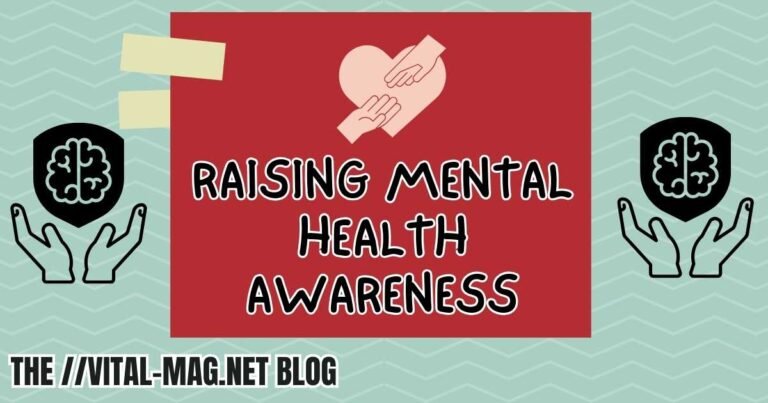Anxiety and Tiredness: Why You Feel Drained Daily

Introduction
Even after a full night’s rest, do you still wake up feeling tired? Do simple daily tasks feel like mountains? You’re not imagining it. Anxiety isn’t just a mental state—it physically wears you down. It drains energy, ruins sleep, and makes life feel exhausting. This article will help you understand the connection between anxiety and fatigue, and more importantly, guide you with simple solutions that work. You’re not alone, and you’re certainly not broken.
Why Anxiety Leaves You Worn Out
The Nervous System on Overdrive
Your body’s natural response to fear—speeding heart, tense muscles, alertness—is great during emergencies. But when anxiety lingers, this “fight-or-flight” system doesn’t shut off. Even when you’re lying in bed, your body thinks it’s in danger. It’s like running a race while sitting still.
Thoughts That Don’t Stop
Anxiety brings a storm of endless thoughts. “What if I mess up?” “What if something bad happens?” This mental noise acts like a phone app constantly running in the background—it drains your energy even when you think you’re resting.
Real Case: Zara, a teacher, often woke up tired despite sleeping eight hours. Through CBT therapy, she learned to calm her anxious mind. Over time, her energy and focus came back.
Everyday Habits That Make It Worse
Caffeine and Late Nights
That evening coffee and midnight doom-scrolling might feel comforting, but they wreak havoc on your sleep and fuel anxiety. This cycle becomes hard to break.
Skipping Meals and Overthinking
When anxiety strikes, eating often becomes irregular. But your brain and body need proper fuel to function. Add constant overthinking, and it’s no surprise you feel burned out.
Always Being ‘On’
People with anxiety often struggle to rest. They say yes too often, stay online constantly, and feel guilty doing nothing. That constant push leads to burnout fast.
Reset Tips
- Drink water immediately after waking up
- Shut down screens at least one hour before bedtime
- Take a 10-minute walk after lunch to re-center
Could It Be Something Else?
Don’t ignore other possible health causes that may worsen your tiredness. These issues can mimic or amplify anxiety:
- Low iron or anemia
- Thyroid disorders
- Sleep apnea or chronic insomnia
- Vitamin B12 or D deficiencies
Real Example: Yasir felt tired for months. Blood tests showed he had a severe vitamin D deficiency. Once treated with sunlight and supplements, both his energy and anxiety improved.
Real Ways to Reclaim Your Energy
Move—But Gently
You don’t need to hit the gym. Gentle stretching or even a short walk helps regulate stress hormones and re-energizes your body.
Eat What Your Brain Needs
Choose brain-friendly foods like leafy greens, whole grains, nuts, and eggs. Avoid skipping meals, especially breakfast. A nourished brain is calmer and sharper.
Practice Micro-Rest
You don’t need a vacation to rest. Try quick recovery practices during the day:
- Sit in silence for five minutes
- Take ten deep breaths with eyes closed
- Play calming music and do absolutely nothing
The Power of Talking and Therapy
Therapy Can Change Everything
You don’t need to be in crisis to start therapy. CBT (Cognitive Behavioral Therapy) helps break the cycle of overthinking and fatigue with practical tools and daily exercises.
Build a Safe Circle
Just talking to someone who listens—whether a friend, mentor, or support group—can ease your emotional load.
Real Moment: Hina joined a local anxiety support group. Weekly conversations made her feel less isolated, and her sleep naturally improved.
Know the Difference: A Helpful Comparison
| Symptom | Everyday Tiredness | Anxiety-Driven Fatigue |
|---|---|---|
| Improves with sleep | Yes | Often doesn’t |
| Body soreness | Sometimes | Rare |
| Overthinking present | Rarely | Often |
| Linked to stress | Not always | Yes |
| Mental clutter | No | Constantly |
Build a New Routine That Works
Morning
- Wake up at the same time every day
- Avoid using your phone during the first 30-minutes.
- Start with a full glass of water before any caffeine
Midday
- Step outdoors for light and fresh air
- Eat something nourishing (no sugary snacks)
- Breathe deeply for 2 minutes before resuming work
Night
- Turn off screens after 9 PM
- Write down three things you’re grateful for
- Sleep in a cool, quiet, and tech-free space
Wrap-Up: You Deserve to Feel Better
If you’re always tired and anxious, it doesn’t mean you’re lazy or weak. It means your nervous system is calling out for rest. The good news? You can break this cycle. One gentle habit at a time. Start by resting. Be kinder to yourself. Healing doesn’t come from pushing harder—it comes from allowing yourself to breathe.
Try This Today:
- Commit to one habit above for seven days
- Say no to something that drains you
- Text someone: “Can we talk for a few minutes?”
You’re not alone. You’re human. And healing starts with a single step.
FAQs About Anxiety and Tiredness
Q1: Can anxiety really make me feel this exhausted every day?
Yes, because it keeps your brain and body in nonstop alert mode.
Q2: Will I always feel like this?
No. With support and lifestyle changes, your energy can return.
Q3: Is it okay to take naps?
Yes, short naps under 30 minutes are fine—just not too close to bedtime.
Q4: Should I stop coffee completely?
Not completely, but avoid caffeine after lunch to protect your sleep.
Q5: Do I need therapy or can I handle it on my own?
You can start with small changes, but therapy often accelerates recovery.






